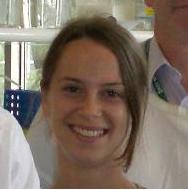
Project Summary:
Prion diseases are a group of degenerative brain diseases affecting both humans and animals. The disease can be hereditary, with human examples including Gerstmann-Sträussler-Scheinker syndrome, fatal familial insomnia, and some cases of Creutzfeldt Jakob disease (CJD); sporadic (accounting for most CJD cases); or caused by infection with the transmissible prion agent from sources such as infected foodstuffs or contaminated blood products. Variant CJD is an example of the last category as it is now widely associated with eating beef prepared from cattle with bovine spongiform encephalopathy (BSE). The prion agent is an abnormal form of the cellular prion protein. The role of the prion protein is as yet unknown but an increasing body of work has linked it with reactive oxygen species (ROS). ROS are often byproducts of normal cellular metabolism, but can be toxic to cells if not efficiently removed. Evidence for aberrant levels of ROS in terminal prion disease is convincing. However credible data supporting the role of ROS in pre and early disease has previously been lacking.
Our research has focused on these early events using a cell based model of prion infection. By means of microtitre plate based assays, we have measured a rapid and pronounced increase in ROS in cell populations during the initial phase of prion infection. We now wish to extend these findings to look at individual living cells from seconds to hours to days post inoculation with preparations of infectious prions. The Brain Foundation research grant has provided us with the funding needed to purchase a fluorescence microscope. This will allow the monitoring of fluorescent ROS probes inside single cells with the aim of visualizing the specific location within the cell where the early change in ROS levels occurs and to determine whether this is a cause or effect of disease initiation. Ultimately, an understanding of the earliest events in disease establishment will help us find effective treatments and develop prophylactic regimes.



 The Brain Foundation is the largest, independent funder of brain and spinal injury research in Australia. We believe research is the pathway to recovery.
The Brain Foundation is the largest, independent funder of brain and spinal injury research in Australia. We believe research is the pathway to recovery.